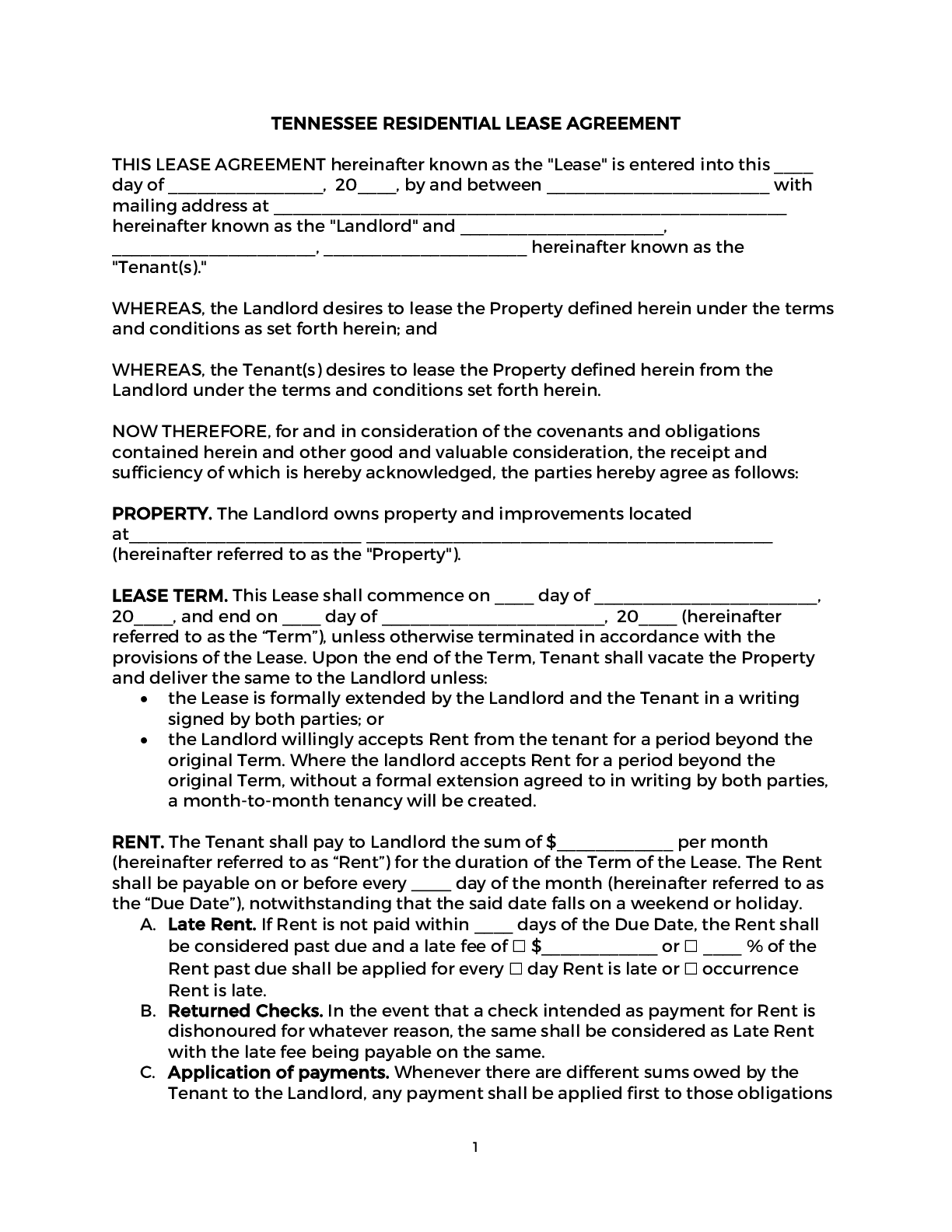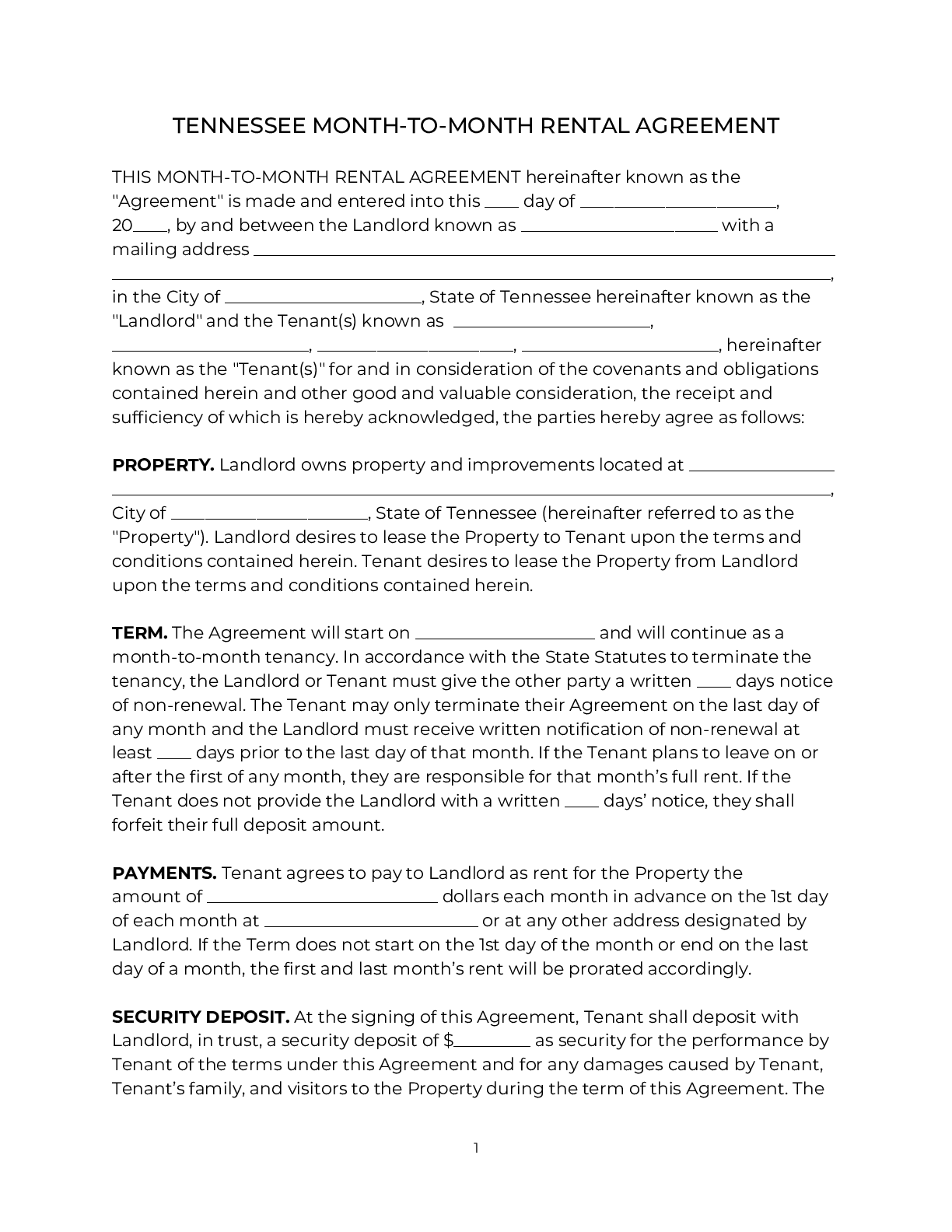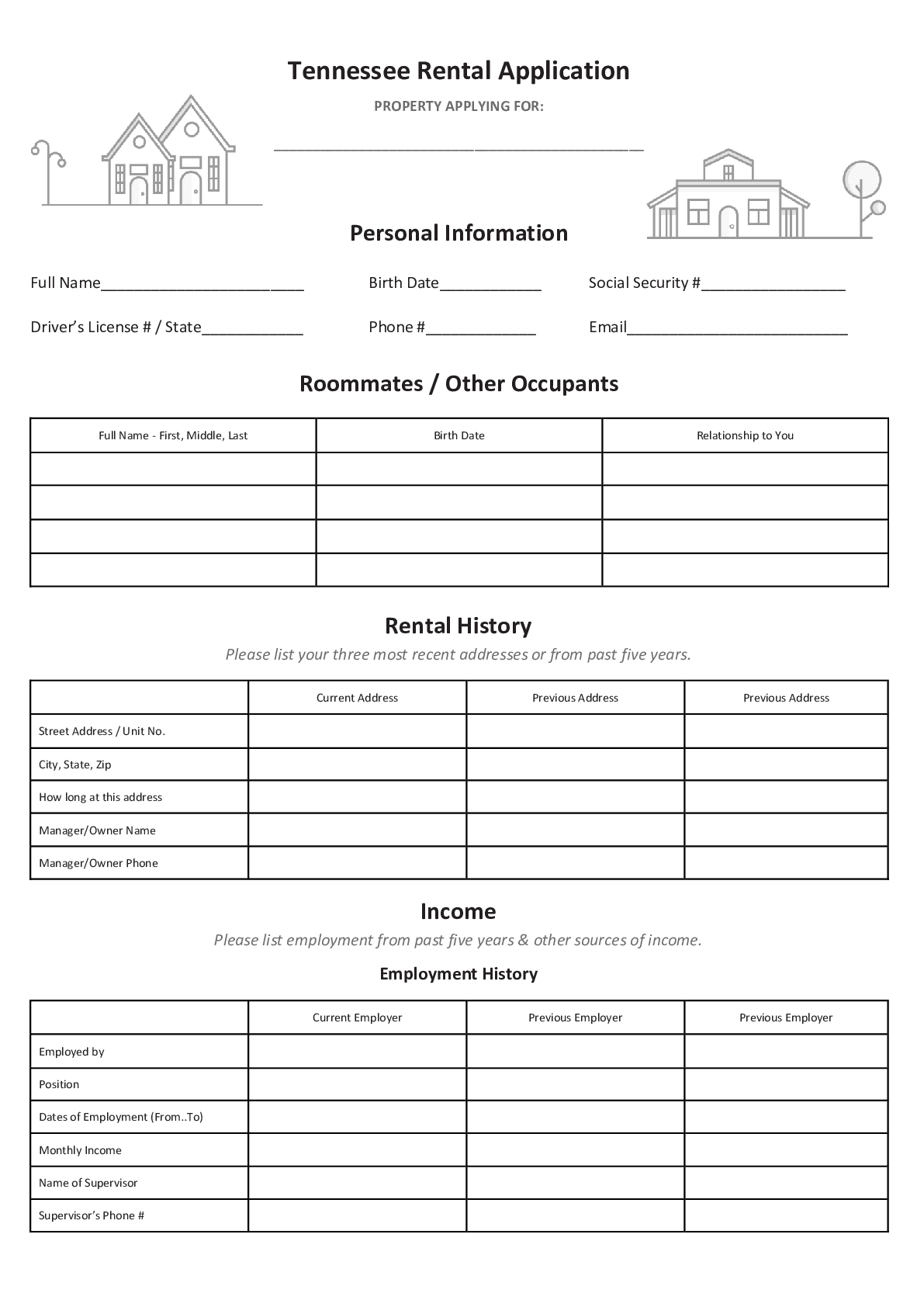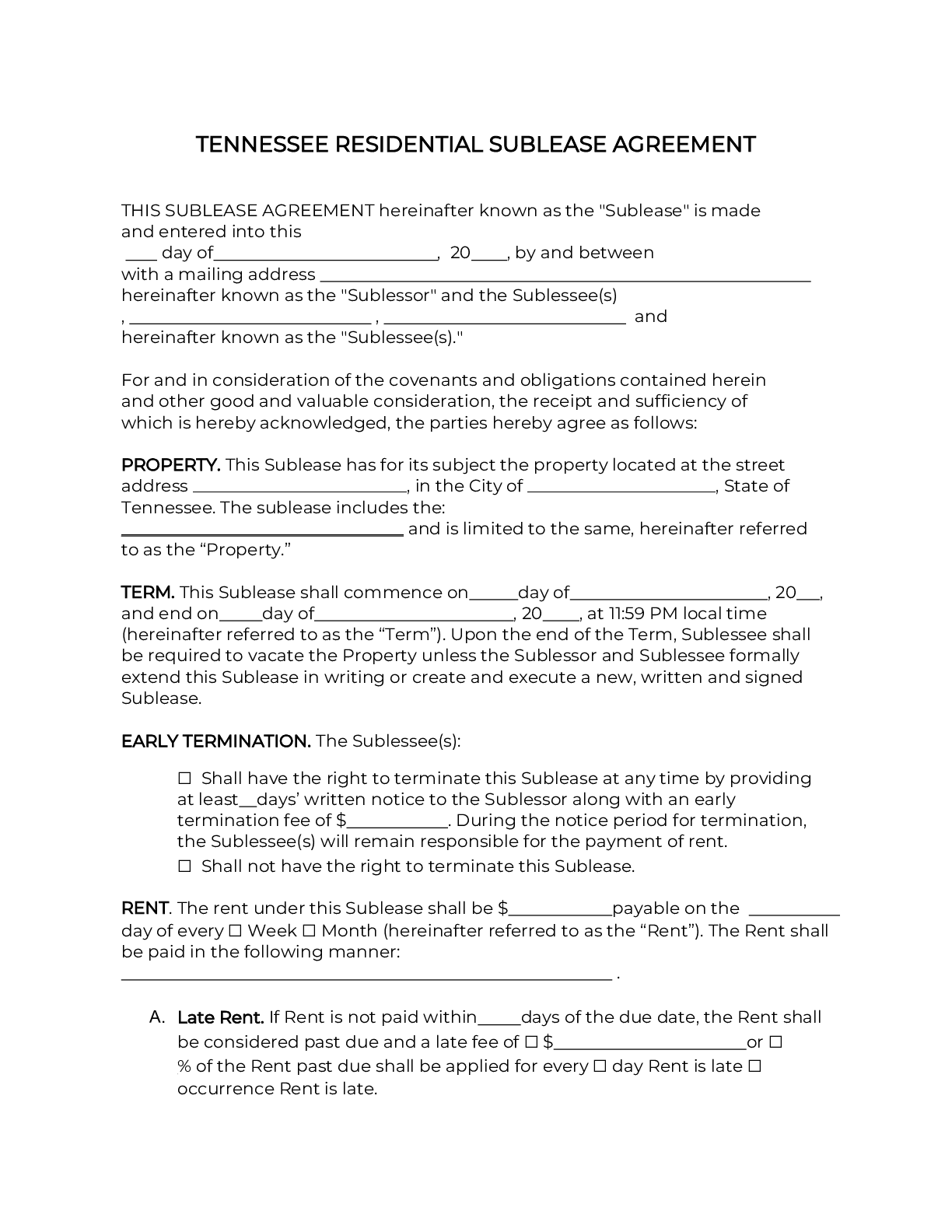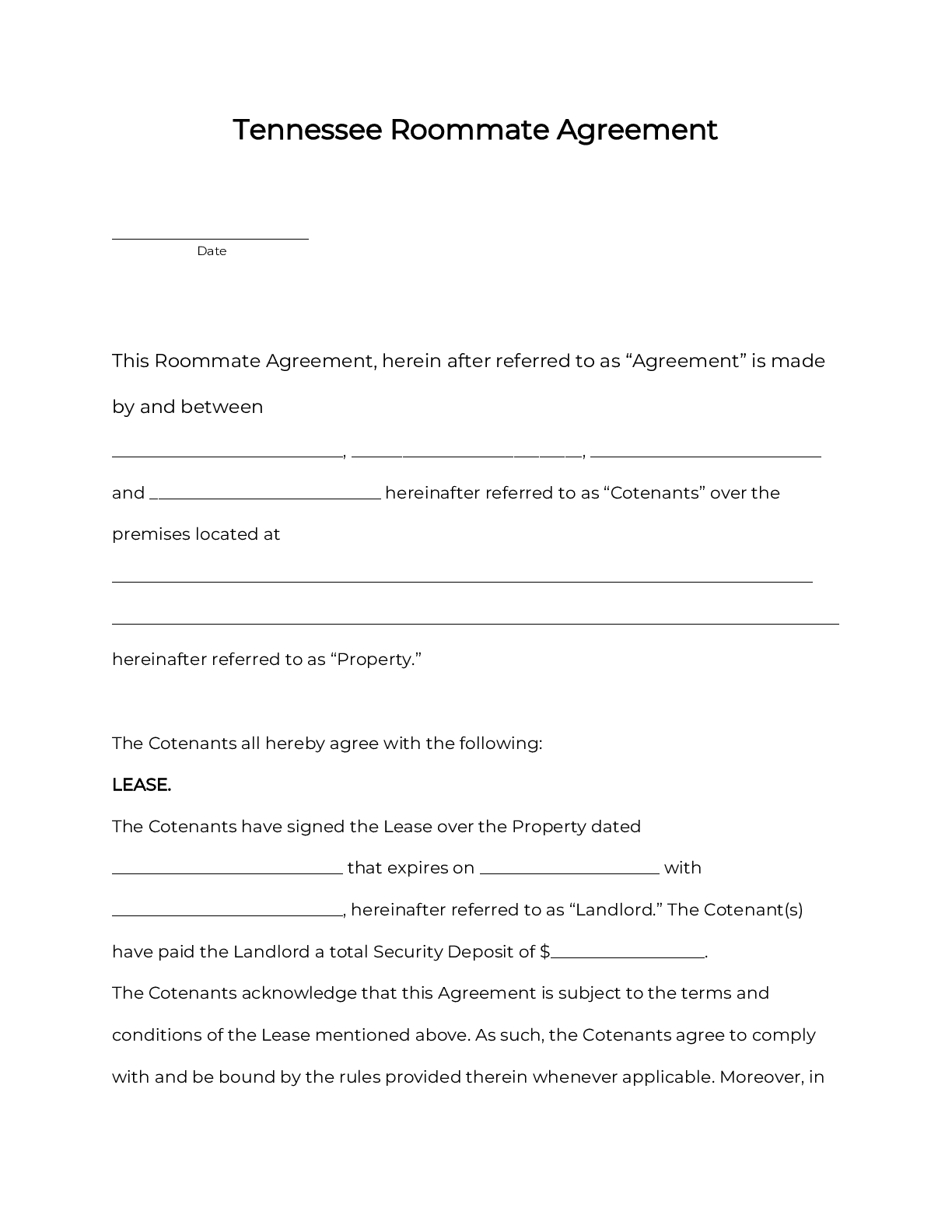A Tennessee rental agreement is a legal contract between a landlord overseeing a rental property and a tenant using the property. Delaware landlord-tenant law governs and regulates these agreements.
Tennessee Rental Agreement Types
Tennessee Required Residential Lease Disclosures
- Landlord’s Name and Address (required for all leases) – Tennessee lease agreements must include contact information for the landlord or an authorized agent. This enables smooth communication and delivery of legal notice. Beginning in 2025, the disclosure must also include either an email address, or the address of a web portal specialized for landlord-tenant communications.
- Security Deposit Holdings Disclosure (required for some leases) – Tennessee landlords cannot collect a security deposit without a disclosure to the tenant detailing the institution holding the deposit.
- Right To Enter for Showings Disclosure (required for some leases) – Tennessee landlords may issue a disclosure which reserves the right to show rental property which is still occupied by a tenant. The landlord’s other rights of entry are unaffected, whether or not the tenant agrees to a showings policy.
- Lead-Based Paint Disclosure (required for some leases) – Landlords must provide an EPA-approved disclosure and informational pamphlet to tenants renting any property built before 1978.
To learn more about required disclosures in Tennessee, click here.
Tennessee Landlord Tenant Laws
- Warranty of Habitability – Tennessee landlords landlords can only rent out habitable property. This means providing certain basic health and safety features like heat, plumbing, and electricity. Landlords must repair any issues within 14 days of proper notice. Otherwise, a tenant can ask a court to order repairs, lease cancellation, or compensation, plus reasonable attorney fees. Tennessee tenants can’t repair and deduct, or withhold rent.
- Evictions –Tennessee landlords may evict for rent default, lease violations, or illegal acts, among other things. Before filing eviction, landlords must serve tenants with prior notice to pay or quit, depending on the eviction type. This means most evictions in Tennessee take between four to eight weeks.
- Security Deposits – Tennessee does not limit the amount of a security deposit. When the lease ends, the landlord must return any unused portion of a tenant’s deposit within 30 days (or 60, if the tenant is silent regarding a refund). Counties with fewer than 75,000 people aren’t bound by these rules and can go with whatever is in the lease.
- Lease Termination – Tennessee tenants can end a month-to-month with 30 days of advance notice. Terminating a fixed-term lease early usually requires active military duty, landlord harassment, uninhabitable property, or domestic abuse.
- Rent Increases and Fees – Tennessee does limit the amount or timing of a rent increase. Fees do have some limitations. Late rent payments can’t charge more than 10% of the unpaid amount as a fees. Bounced check fees have a $30 limit.
- Landlord Entry –Tennessee landlords have a right to enter rental property for inspections and maintenance. The landlord also may reserve a right to show the property to potential tenants or buyers, by agreement in the lease. Except in emergencies, a landlord must provide reasonable advance notice (usually at least 24 hours).
- Settling Legal Disputes – Tennessee lets small claims courts hear landlord-tenant disputes, as long as the value in controversy is under $25,000. Unlike many other states, Tennessee allows eviction cases in small claims. The statute of limitations is 6 years for rent-related claims, and 3 years for other types of disputes.
To learn more about landlord tenant laws in Tennessee, click here.
Sources
- 1 Tenn. Code § 66-28-302
-
SECTION 1. (a) The landlord or any person authorized to enter into a rental agreement on the landlord’s behalf shall disclose to the tenant in writing at or before the commencement of the tenancy:
(1) The name and address of:
(A) The agent authorized to manage the premises; and
(B) An owner of the premises or a person or agent authorized to act for and on behalf of the owner for the acceptance of service of process and for receipt of notices and demands; and
(2) (A) A telephone number or electronic mail address for maintenance services; or
(B) An online portal system designed for landlord-tenant communication.
SECTION 2. This act takes effect January 1, 2025, the public welfare requiring it, and applies to rental agreements entered into, amended, or renewed on or after that date.
Source Link - 2 Tenn. Code § 47-29-102
-
When any check, draft, or order is not paid by the drawee because the maker or drawer did not have an account with or sufficient funds on deposit with the financial institution, or the draft, check, or order has an incorrect or insufficient signature thereon, the payee of such check, draft, or order is authorized to assess a handling charge against such maker or drawer in an amount not to exceed thirty dollars ($30.00).
Source Link




